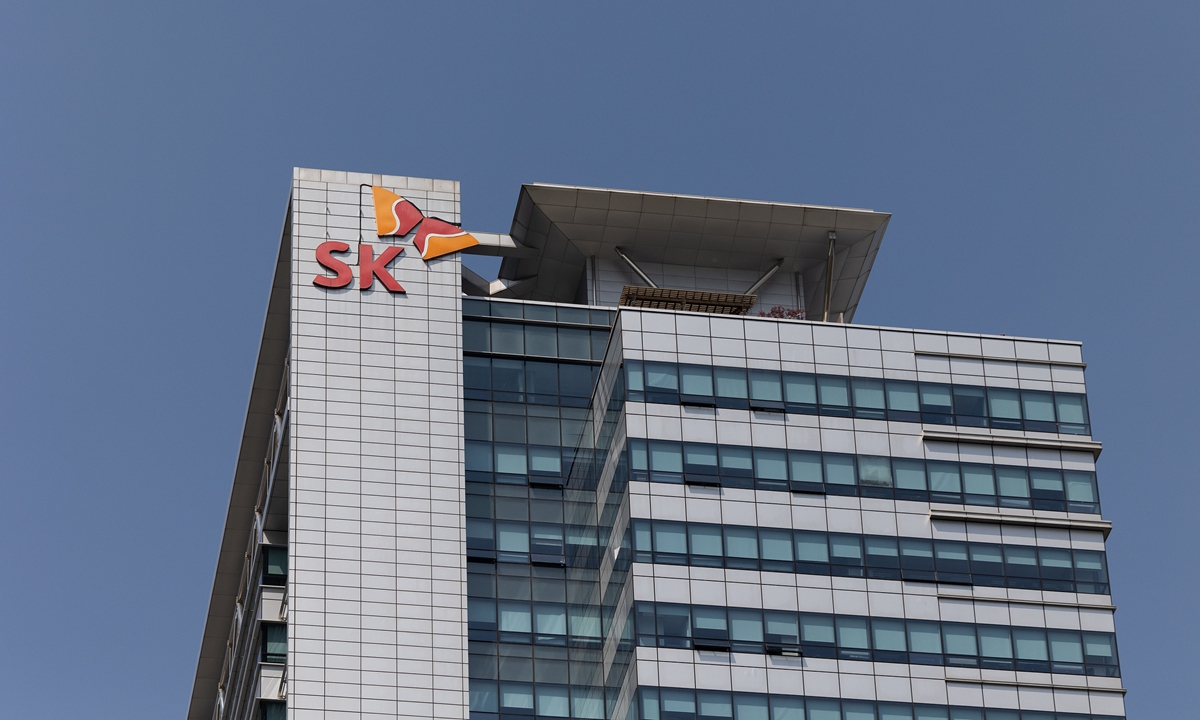
Photo: CFP
South Korea has recently unveiled its plan to establish what it calls a "semiconductor mega cluster" in southern Seoul by 2047 by promoting a total investment of 622 trillion won ($472 billion) with Samsung Electronics and SK Hynix Inc, Yonhap News Agency reported.
It is understandable that South Korea has announced an ambitious expansion plan for its semiconductor industry despite the US' intensifying chip war, as employment and revenue of South Korea's economy heavily hinge on its semiconductor industry. With production expanding, South Korea may export more to the Chinese market. But to do that, it has to continue to mitigate the impact of US political interferences.
For a long time, China's business has accounted for a significant portion of the sales of South Korean semiconductor manufacturers such as Samsung and SK Hynix. Over the past decade, more than half - at one point close to 67 percent - of South Korea's chip exports were sold to China, according to media reports.
Take SK Hynix as an example. Its revenue from China peaked at nearly 47 percent in 2019. Although this number decreased to 27 percent in 2022, it still remains an important part of the company's business. "To give up the large market that is China? We won't be able to recover," Chey Tae-won, SK Hynix's chairman, said in July 2023, the New York Times reported.
It is evident that the mutually beneficial cooperation between the semiconductor industries of China and South Korea has been delivering practical benefits to South Korean companies and creating significant opportunities for industrial development. Contrarily, the US' coercion to involve South Korea in its chip stranglehold against China is causing significant losses for South Korean chipmakers.
In the first half of 2023, South Korea's semiconductor exports to China plummeted by 39.8 percent year-on-year. Although there was a rebound in recent months due to the recovery of semiconductor industry demand, sluggish semiconductor exports have dragged down South Korea's overall exports to China. In 2023, South Korea experienced its first trade deficit with China in 31 years, with a total deficit of $18 billion.
The expansion plan for South Korea's semiconductor industry comes as the global semiconductor industry is experiencing a recovery. According to data from the Semiconductor Industry Association (SIA) in the US, global semiconductor sales increased by 5.3 percent to $48 billion in November 2023 compared to the previous year. The global semiconductor market is expected to achieve double-digit growth in 2024.
China's chip companies have recently seen a significant increase in performance. Despite the US' attempts to suppress the development of China's semiconductor industry through trade restrictions on chip exports, Chinese chip companies continue to maintain strong growth. Recently, Chinese semiconductor companies have successively released their performance forecasts for 2023, showing substantial growth in revenue and net profit. This fully demonstrates the strengthening of China's chip industry's supply-side capabilities.
As South Korea increases investment in the semiconductor industry, it also needs to increase semiconductor exports to China. As SK Hynix's chairman said, it is impossible for South Korean semiconductor manufacturers to find an alternative to the Chinese market.
However, the US government is intensifying efforts to use its technological advantage to pressure the South Korean government to jointly establish a semiconductor supply chain that excludes China, limiting South Korean semiconductor exports to the country, which in the end will only result in South Korea losing the significant market share in China.
Some industry analysis institutions believe that the semiconductor industry cycle has already hit the bottom, consumer demand is gradually recovering, memory prices are continuously rebounding, and a cyclical recovery may be on the horizon.
Although the global semiconductor industry is perhaps on the verge of a rebound, the key to further recovery of the South Korean semiconductor industry lies in eliminating and reducing the impact of US chip trade restrictions and the fragmentation of the Asian supply chain. If South Korea cannot eliminate the political interference from the US in its semiconductor sector, its semiconductor industry and companies will only fall victims of the US' geopolitical games.
The author is a reporter with the Global Times. bizopinion@globaltimes.com.cn



